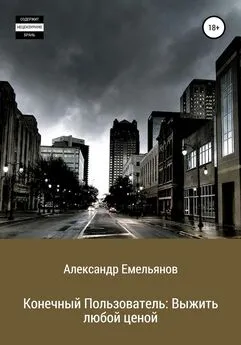Пользователь - o 3b3e7475144cf77c
- Название:o 3b3e7475144cf77c
- Автор:
- Жанр:
- Издательство:неизвестно
- Год:неизвестен
- ISBN:нет данных
- Рейтинг:
- Избранное:Добавить в избранное
-
Отзывы:
-
Ваша оценка:
Пользователь - o 3b3e7475144cf77c краткое содержание
o 3b3e7475144cf77c - читать онлайн бесплатно полную версию (весь текст целиком)
Интервал:
Закладка:
would it go before they became aware of it themselves?
Lanny couldn't tell them what he knew. He couldn't say to Hugo: "Your Führer is in the
thick of negotiations with Thyssen, and Krupp von Bohlen, and Karl von Siemens, and others
of the greediest industrialists of your country. He is making fresh promises of conservatism
and legality. He will do anything to get power, and anything to keep it. You and your friends
are just so many pawns that he moves here and there and will sacrifice when his game requires
it." No, for they would ask: "How do you know this?" And he couldn't reply: "Fritz Thyssen
told my father yesterday." They would assume that he had got the stories from Johannes
Robin, a Jew, which would mean to them two things: first, that the stories were lies, and
second, that some Nazi patriots ought to visit the Robin palace by night and smash all its
windows and paint Juda verrecke! on its front door.
No, among Catholics one did not question the purity of the Holy Virgin, and among Nazis
one didn't question the honor of the Führer. When he said in his book that he would have no
honor, he meant as regards his foes; but for his Parteigenossen he was a loving shepherd, to
be followed after the manner of sheep. All that Lanny could do was to ask impersonal
questions. "How can the Führer get commercial credits, if Germany defaults in payments on
her bonds? I don't mean reparations, but the bonds of private investors." Hugo Behr, naive
young Socialist, didn't even know that there were such bonds. Lanny said: "I have several of
them in a safe-deposit box in Newcastle, Connecticut. I bought them because I wanted to help
your Socialist republic."
"It is a bourgeois fraud!" said the ex-Marxist; and that settled all Lanny's claims.
VIII
Kurt had written, begging Irma and Lanny to come for a visit. Lanny had never been to
Stubendorf except at Christmas time, and he thought it would be pleasant to see the country in
midsummer. They drove with a speed greater than the wind over the splendid level roads of
Prussia, past fields where gangs of Polish immigrant women labored on the potato crops. The
roads were lined with well-tended fruit trees, and Irma said: "We couldn't do that in America.
People would steal all the fruit." She had never seen vast fields so perfectly cultivated:
every inch of ground put to use, no such thing as a weed existing, and forests with trees
planted in rows like orchards. She renewed her admiration for the German Volk.
They stayed at the Schloss, even though the Graf was not at home. Kurt had a new "Junker,"
and so had his brother's family and his sister's. Herr Meissner was feeble, but able to talk
politics; he renewed his complaints of corruption and incompetence of the Polish government
under which he was forced to live. Just now there was wrangling over religious questions; the
old problem of the relations of church and state was being fought over with bitterness
inherited through six centuries or more. There were Polish Lutherans and German Lutherans
who couldn't and wouldn't say the Lord's prayer together. There were Polish Catholics trying to
polonize German Catholics. There was the Volhynian Russian church, and the Uniat church
which was half-way between Russian Orthodox and Roman Catholic—they accepted the Pope,
but their priests married and had large families. Superimposed upon all this was a new Polish
ecclesiastical system, which subjected all the churches to the government. Herr Meissner, soon
to depart from this earth, found the making of a proper exit as complicated a problem as had
ever confronted him while staying on.
Lanny had been looking forward to having a frank talk with his old chum. He wanted to tell
Kurt what he had learned about the Nazi political machine, and make one last effort to get him
out of it. But he realized that it would be a waste of effort. Kurt was in a state of exultation
over the election results, for which he had been hoping for ten years and working for five. He
considered that Germany was being redeemed, and he was composing a Victory March to end
all marches. Lanny decided sadly that it was better to play piano duets and consider politics as
beneath the notice of inspired musicians.
He and Irma had intended to return to Berlin for another cruise; but there came a telegram
from Miss Severne, who was under strict orders to report the slightest sign of indisposition
on the part of her charge. She reported a digestive disturbance and a temperature of 101; that
didn't mean much in a child, and the nurse was sure it wasn't serious, but Irma fell into a
panic right away—she was a neglectful and selfish mother who had run away from her
responsibilities, amusing herself all over Europe. She wanted to take a plane; but Lanny
said: "By the time you get to an airport and arrange for one we can be half way home. You
spell me and we'll drive straight through."
So they did, and reached Juan in a little over two days—not so bad considering the
mountains in Austria and Italy. Twice on the way they stopped to telephone, and when they
arrived they found that the fire was all out. Was it the magic of Parsifal Dingle, or just the
natural tendency of very young children to get over a fever as quickly as they get it? There was
no way to know; suffice it that Lanny's stepfather had done his best, and Miss Severne had
done hers, and Baby Frances was well—and ready to take full advantage of a reformed and
penitent mother! Irma was so happy to prattle and dance and play with her darling that she
couldn't understand how she had ever wanted to be fashionable.
IX
They settled down to domestic life. In the evening Sophie and her husband would come over
to play bridge with Irma and Beauty. Marceline had begun attending a private school, where
fashionable young ladies didn't learn very much but were watched and kept out of mischief.
That left Lanny free to read the magazines which had accumulated in his absence, and to play
the music that took his fancy; also to attend the workers' school and tell them what he had
learned in England and Germany, and advise them how to avoid the misfortunes which had
befallen their comrades in these countries.
The only trouble was, the data appeared so complicated and the conclusions so uncertain.
"MacDonaldism" appeared to indicate the futility of "gradualness" and legality; the moment
you mentioned it, up popped some young Red to say: "You see what happens when the
workers put their trust in parliaments!" When you mentioned Hitler, right away a wrangle
started as to what had caused him. Was he an agent of German heavy industry, and a proof that
capitalism would not submit peaceably to any form of limitation upon its rule? Or were the
Nazis-a product of the fears which Bolshevism had inspired in the Kleinbürgertum— the small
business men, the petty officials, the white collar workers who had no unions and couldn't
protect their status?
You could take either side of this debate, produce a mass of facts to prove your case, and
come out feeling certain that you had won. The uncomfortable person was the one like Lanny,
who wanted the whole truth, and could see that there was some of it on both sides. Nobody
could look at an issue of a Nazi newspaper without seeing that they were exploiting the fear
of Red Russia to the limit; on the other hand, who could look at Hitler's Braune Haus with its
costly equipment, or see the Stormtroopers marching with their shiny new uniforms and
weapons—and not know that this movement was being financed by big money of some sort.
Großkapital was afraid of Russia, just as the white collar workers were; but Großkapital was
exploiting all the workers, and these two groups couldn't agree on any domestic policies.
Sooner or later the Nazis would have to make up their minds which master they meant to
serve.
There lay the drama of present day events in Germany, and Lanny strove to explain it to the
French workers and to such of their leaders as he met. Hitler sat in his study in Berlin, or in
Munich, or in the retreat which he had bought for himself in the mountains, and the Nazi
chieftains came to him and argued and pulled him this way and that; he thought it over, and
chose whatever course seemed to him to open the way to power. He was as slippery as an eel,
and as quick to move, and nobody could say what he was going to do until he had done it. The
one thing you could say for sure was that National Socialism was power without conscience;
you might call it the culmination of capitalism, or a degenerate form of Bolshevism—names
didn't matter, so long as you understood that it was counter-revolution.
The important question was, whether this same development was to be expected in every
country. Was the depression going to wipe out the middle classes and drive them into the arms of
demagogues? Were the workers being driven to revolt, and would their attempts be met by the
overthrow of parliaments? Were the Communists right in their seemingly crazy idea that
Fascism was a necessary stage in the breakdown of capitalism?
Apparently the question was up for answer in the land which Lanny and Irma called theirs.
The ex-service men who had gone overseas to fight for their country had come back to find the
jobs and the money in the hands of others. Now they were unemployed, many of them
starving, and they gathered in Washington demanding relief; some brought their destitute
families and swarmed upon the steps of the Capitol or camped in vacant lots beside the
Potomac. The Great Engineer fell into a panic and could think of nothing to do but turn the
army loose on them, kill four, and burn the tents and pitiful belongings of all. The "bonus men"
were driven out, a helpless rabble, no one caring where they went, so long as they stopped
bothering politicians occupied with getting re-elected.
To Lanny this appeared the same thing as the Cabinet of the Barons, seizing control of
Prussia and ruling Germany with only a few votes in the Reichstag. It was Poincaire occupying
the Ruhr for the benefit of the Comite des Forges; it was Zaharoff sending an army into Turkey
to get oil concessions. It was the same type of men all over the world. They tried to grab one
another's coal and steel and oil and gold; yet, the moment they were threatened by their wage
slaves anywhere, they got together to fight against the common peril. Do it with the army, do it
with gangsters, do it with the workers' own leaders, buying them or seducing them with titles,
honors, and applause!
Lanny could see that clearly; and it is a pleasure to the mind to discover unity in the midst of
variety. But then the thought would come to him: "My father is one of these men, and so are
his father and his brothers. My sister's father-in-law is one, and so was my wife's father, and
all the men of her family." That spoiled the pleasure in Lanny's mind.
X
Two or three weeks passed, and ambition began to stir once more in the soul of Irma Barnes
Budd. There was that splendid palace in Paris, for which she was paying over eighty thousand
francs rent per month, and nearly as much for upkeep, whether she used it or not. Now it was
Читать дальшеИнтервал:
Закладка:




